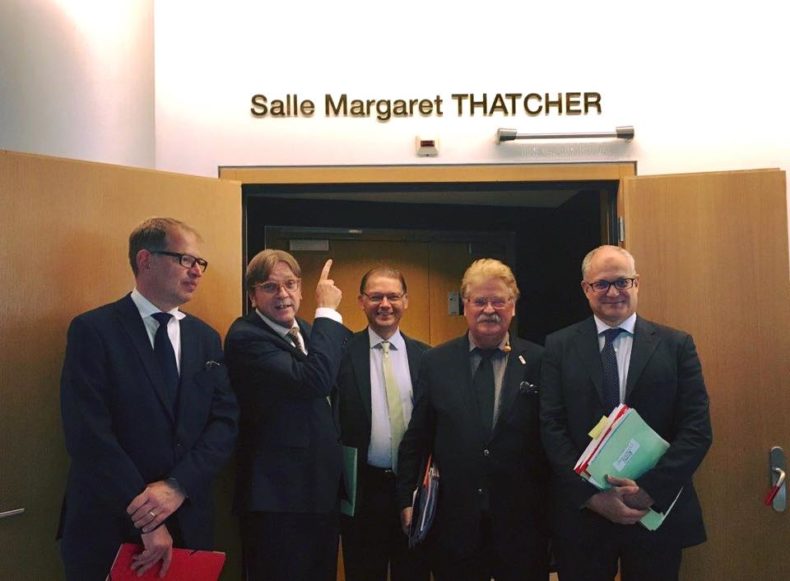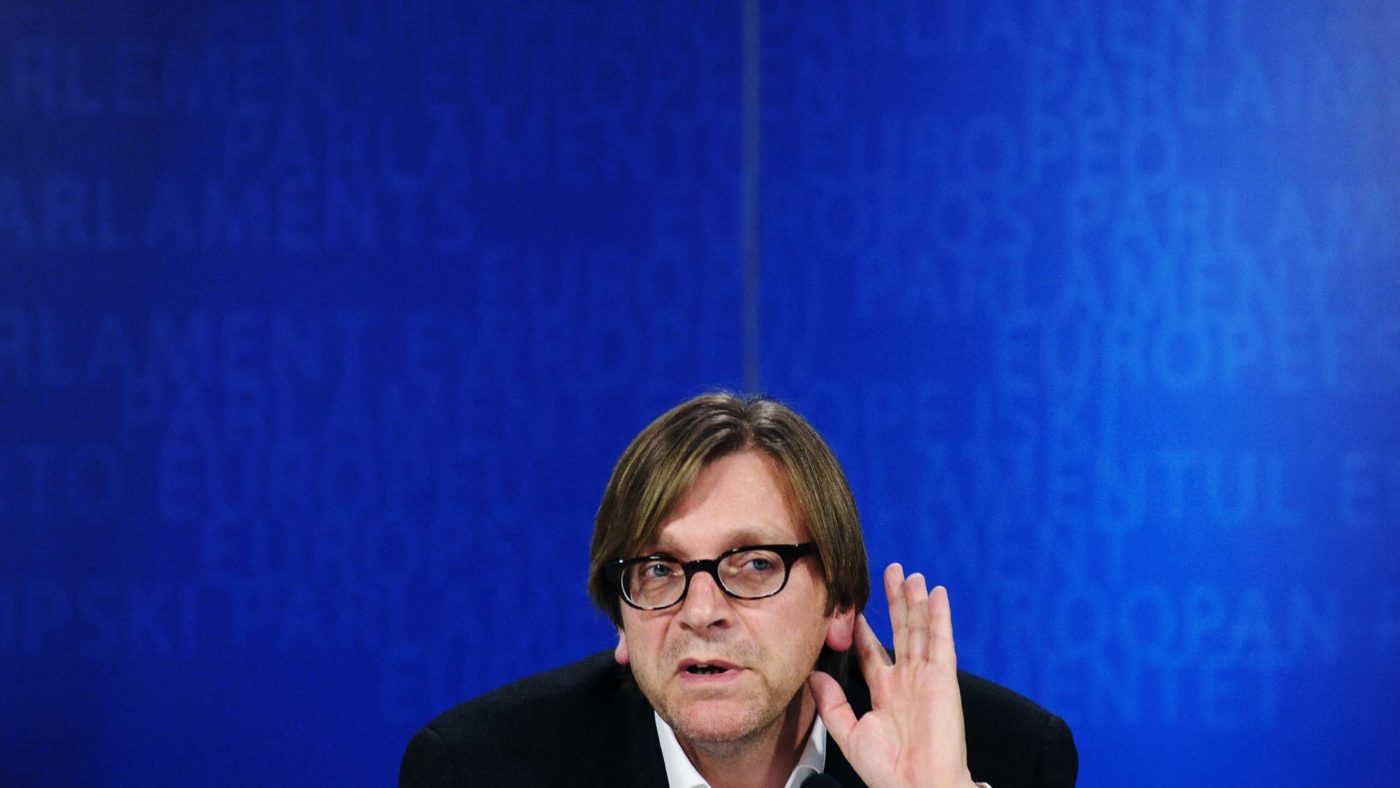Jean-Claude Juncker’s State of the European Union speech last week attracted plenty of criticism. Mostly from those accusing him of not learning anything from Brexit, and just continuing towards the goal of an ever closer union.
As Nigel Farage said afterwards: “The message is very clear: Brexit has happened, full steam ahead.” Syed Kamall, a Tory MEP, complained that “the EU needs to create more opportunities, not more regulations and more agencies”. Polish MEP Ryszard Legutko was incensed by the Commissioner’s proposals: “More of the same old, same old, more Europe, more Europe.”
One critic, however, stood out from the crowd. Because he thought that Juncker’s speech – despite being “full of vision, ambition” – didn’t go far enough. This observer argued for “more European action against climate change”, a European army, more competences for the EU in the fight against terrorism, a new “European asylum system” and a “European border and coastguard”. And also a European defense union and a European FBI.
That, however, is only the first stage. After that, we need “a real government for the euro area so that we can steer the European economy and we can create what, in fact, we are missing – European champions. Our competition rules are far too narrow. The fact that we have no unified markets with single regulators is why we have no European champions that can become world champions and compete at world level.”
These demands came from a familiar figure: Guy Verhofstadt. Verhofstadt has been known for a long time as Mr United States of Europe, popping up endlessly in the British media (and elsewhere) to lambast the Brits for their failure to understand the glories of the European Project. In 2005 he released a book called Verenigde Staten van Europa – or Les Etats-Unis d’Europe in French – in which he argued for a federal Europe. Inevitably, it won the European Book Prize, handed out by the European Commission.
Since becoming an MEP in 2009, Verhofstadt has continually demanded more EU integration. But here’s something you may not realise – and something which explains an awful lot about the EU’s problems. The group Verhofstadt leads in the European Parliament, the ALDE, is meant to be made up of classical liberals.
Verhofstadt, at the beginning of his career, was dubbed “Baby Thatcher” for his radical free-market ideas. Sure, he moved to the centre over the years, but it still seems as if he still sees himself as Thatcherite in part. Right after his call for a United States of Europe, he went on Facebook, posting this picture:

It’s hard to say what’s more ironic: the fact that there is a room at the Strasbourg Parliament which is named after Margaret Thatcher, or that Europe’s best-known federalist is proudly taking pictures in front of it.
Thatcher, after all, was always skeptical of the increasing power that was handed to the EU – or in her time, the European Community. As she said in her famous Bruges speech, “the European Community is one manifestation of [the] European identity, but it is not the only one”. She warned against seeing the EU as “an end in itself.”
While Verhofstadt talked about finally creating “single regulators”, Thatcher thought that the EU must not “be ossified by endless regulation”. While Verhofstadt demands a European federal state, Thatcher thought that the EU needed to be composed of sovereign states cooperating with one another:
“To try to suppress nationhood and concentrate power at the centre of a European conglomerate would be highly damaging and would jeopardise the objectives we seek to achieve.
“Europe will be stronger precisely because it has France as France, Spain as Spain, Britain as Britain, each with its own customs, traditions and identity. It would be folly to try to fit them into some sort of Identikit European personality.”
Thatcher would have surely disagreed with Verhofstadt’s claim that we need “a real government for the euro area so that we can steer the European economy”. His fellow classical liberal, Friedrich Hayek, argued that it was a “Pretense of Knowledge” to think that an economy can be steered by experts, or by a government – a centralised one like the EU all the more. As Kamall said in his own speech: “Just as Soviet five-year plans did not create creative economies, EU growth plans do not create jobs: it is businesses that create jobs.”
Only two days before, the European Parliament’s Committee on Constitutional Affairs had met to talk about what will happen with the soon-to-be vacant British seats after Brexit. Verhofstadt, inevitably, argued for a pan-European list, meaning that some MEPs would be voted on by everyone in Europe. “And why do we want to do that? Because it is time to lift democracy to a continental scale – Europe is more than the sum of 27 national democracies; we are more than that, we are in fact a democracy on a European scale.”
By not introducing transnational lists, he said, the European Parliament would be “on the wrong side of history”. The idea that someone can be on the right – or wrong – side of history came initially from Hegel, but has since been adopted by both socialists and the collectivist right. Yet it has always led to social engineering projects which have caused way too much trouble. The idea that a European identity could or should be imposed upon an entire continent could lead to similar results.
“Welcome to hell,” Verhofstadt said to Brexit secretary David Davis when he arrived for the first negotiations in Brussels. What Verhofstadt meant was that the negotiations would be brutally tough for the UK.
The irony is that a man who claims to be an economic liberal is also the driving force behind the kind of centralised, top-down and heavily regulated EU that would be pretty hellish itself.


